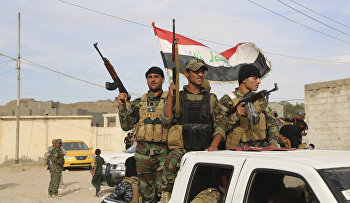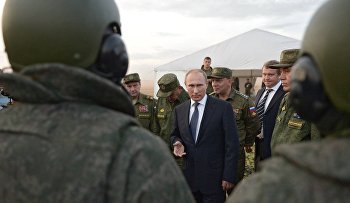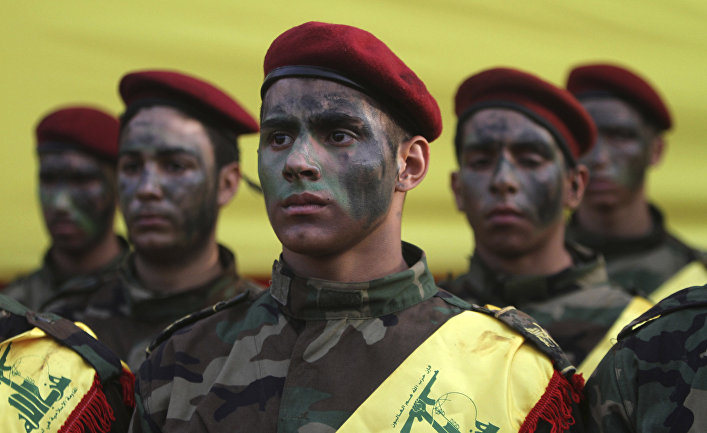German chancellor Angela Merkel was supposed to be shocked after she received a letter from the German embassy in Beirut, written by the chief of staff Samir Geagea. The letter includes “lessons” and “advices” related to German stance on Syria and how they should change their opinion towards Bashar Al-Assad and his regime. Was Merkel suppose to summon a number of her advisors and close cabinet members to take an account of the letter to reconsider their stance on Syria? All these anecdotal scenarios reflect the shallow minds of some Lebanese leaders, most of them from the March 14 Alliance. The latter was named after the date of the Cedar Revolution, and is a coalition of political parties and independents in Lebanon formed in 2005 that are united by their anti-Syrian regime stance. Not a surprise.
Here is how the March 14 Alliance interprets the latest global events.
Putin seems to lead the situation in Syria; he got a parliament consensus for military intervention in Syria, synchronized with Washington’s declaration to hold opposition training plan for “moderate” Syrian opposition. A “road map” seems to be drawn by Moscow and Washington, according to the Arabic proverb “the dogs bark but the caravan goes on.”

Saudis are out of the “game”; making objections; refusing any bilateral or collective talks with Iran, leaving the latter totally out. Saudi FM agrees in Doha to meet with the US and Russian foreign ministers and tackle “every subject” except opening communication channels with Tehran. Moscow plays the role of a moderator till the Saudi rage is quenched. Mina’s catastrophe heightens tension and things became complicated. Saudi Kingdom showed grudges dealing with wounded people and fatalities. Iranians are angry as well. Saudis are absurdly unable to read the situation regionally and globally. They are frightened by the blind US drift behind Moscow and Iran and ultimately worried that the war in Yemen moves towards miscalculated maze. Arabian Gulf is collapsing having nothing except denial and delaying answers to wait for a “time game” to yield results.
Moscow and Riyadh confirmed there was a number of opportunities for bilateral cooperation http://t.co/2R20jnn6fE pic.twitter.com/4Hs0tw3Lfu
— MFA Russia (@mfa_russia) October 11, 2015
This summary is deeply rooted in the minds of March 14 Alliance leaders. According to these circles, all are convinced that there seems to be a crisis for Saudis in their decision-making process. Communications with the American embassy in Beirut dictate these ideas. American ambassador advised some friends to keep away from Saudi’s politics. The only way out is to reach answers through finding an acceptable space that may become of value in the near future. In the meantime, some people exerted effort to get answers from Saudi ambassador in Beirut, Ali Awad Al-Assiri. Although that clarified nothing, just a few words unsupported by convincing evidence. Head of the Future Movement, Fouad Siniora told his addressees that the Saudi kingdom believes that Lebanon should remain in the state of vacillation or indecision. He emphasized optimistically that whatever happens, the rule of “no winner, no loser” will be applied in Lebanon. Those who wait to get right answers from President Saad Hariri would be disappointed, as the eternal answer is “Inchallah … Khair” meaning “God willing, everything will be ok.” Employees heard this phrase repeatedly throughout months of unpaid salaries.
The real problem is that the decision maker in Saudi Arabia wants to win in Yemen, never lose in Syria, while giving up nothing in Lebanon. This clearly reflects the balance of powers in the region, but someone in the Riyadh wants to proceed with their plan, which becomes a source of a “headache” to allies of Riyadh even in the Arabian Gulf. According to information sources, Qataris told Saudis that military resolution in Yemen is hard and expensive, and is not expected to end soon. It became almost impossible to win the combat in Syria. The US’s interests changed after the nuclear deal with Iran. There seems a need for a strategic dialogue with Iran before it’s too late. The Kingdom ignored the “advise” of Qatari prince who had no choice but to embarrass the Kingdom publicly, motivated by Washington, declaring in New York that his country is ready to host a dialogue between Gulf States and Iran. The Qatari Prince went farther to explain the situation as a not mere sectarian Sunni-Shiite struggle, but a conflict within a political context. This contradicts the sharp language prevailing Saudi media, which continuously demonizes Iran.
#SaudiArabia Interprets Anti-#ISIL Campaign in Syria as Russia-Iran Alliance http://t.co/yHvfSIzLIK pic.twitter.com/Mevl7B0dtm
— Sputnik (@SputnikInt) October 11, 2015
This might be the first raindrop among these circles. There are serious efforts to support this dialogue, which seems a good opportunity to hold discussions transcending direct relationships of Iran and Gulf states, to problematic regional files like Syria, Yemen, Iraq and Lebanon. Iran, suspicious of the role of Washington’s allies, still prefers to play a role, despite the fact that it didn’t reject the request of Qatari prince to adopt a “deeds not words” principle. His last speech might be the down payment before the sitting at the round table for talks.

Based on all of the above, here comes the US “advice” heard by more than one leader belonging to the March 14 Alliance. Keeping in mind that deserting Saudi Arabia is considered to be political “suicide” for these people, as Washington is not always the safe resort. Consequently, it is indispensable to remain attached to Saudi options for the March 14 Alliance leaders, as Doha is out of the influence circle under the auspices of Saudi Arabia, after the deal with Turkey to integrate security and military efforts in Syria. The Prime Minister returned from New York more than convinced that Lebanon is the last item on the global priority list. The USA focuses on Hezbollah, embracing Israeli stand, whereas Europe’s main focus is to keep Syrian refugees on the Lebanese territories. Sure, stability and security are everyone's intention. This is what more than one Lebanese leader has heard recently. And in this political “unemployment,” as Hariri spends most of his time on twitter answering Hassan Nasrallah, the third Secretary General of the Lebanese Hezbollah. Likewise, it is possible to understand Samir Geagea’s lamentations in the press. It may be of value to remember that a number of elite military leaders in Hezbollah started to contribute to operations in Baghdad, side by side with major Russian, Syrian and Iraqi officers.






